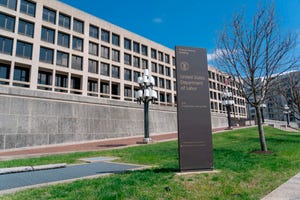Evaluating trade terms

AGRICULTURAL legislators are pushing the message that trade is important to agriculture in both the pursuit of new trade agreements and reviews of past agreements.
In the House, 140 members sent a letter to President Barack Obama expressing their concerns over the current negotiations regarding the Trans-Pacific Partnership (TPP) and its effect on agricultural markets. The letter urged Obama to pursue a high-standard, 21st-century agreement.
They also said accepting a deal like the one Japan is offering — as well as a less-than-ambitious offer from Canada — would set a "damaging" precedent for, and would compromise, U.S. free trade agreement (FTA) negotiations with future TPP members, including one with the European Union.
If the U.S. agrees to the terms offered by Japan, it would considerably undermine congressional support as well as limit the ability of farmers and ranchers to access foreign markets. The letter urges Obama "to hold Japan to the same high standards as other TPP nations."
Meanwhile, the Senate finance subcommittee on international trade, customs and global competitiveness held a hearing July 29 to consider lessons learned during the first two years of the U.S.-Korea FTA.
Sen. Debbie Stabenow (D., Mich.), chair of the subcommittee, said the agreement serves as a model for future trade agreements and underscores America's commitment to the Asia Pacific region.
However, Stabenow added that thus far, the deal with Korea "has fallen short of our hopes." The agreement aimed at narrowing the trade deficit between the U.S. and Korea has actually gone in the wrong direction.
Dairy producers have reaped many benefits from the trade agreement, but they continue to face challenges when it comes to certain products that are blocked from the market based on geographical indications.
Shawna Morris, vice president for trade for the National Milk Producers Federation and the U.S. Dairy Export Council, said even though the agreement has been in place only since 2012 and its full impact is still years away, U.S. dairy exports to Korea in 2013 more than doubled the average of the three previous years.
Despite the positives of the U.S.-Korea FTA, though, Morris said a separate FTA between Korea and the EU in 2011 is abusing geographical indication regulations to inappropriately restrict U.S. access to the Korean market for gorgonzola, feta, asiago and fontina cheese.
"Since approval of the EU-Korea FTA, the EU has expanded around the world the model it first developed in that agreement," Morris said. "EU pressure has resulted in similar restrictions in Central America, Peru, Colombia and, most recently, in South Africa. Canada has also agreed to restrict cheese names, and we understand the EU is pursuing similar objectives in Singapore, Japan, the Philippines, Malaysia and Vietnam, as well as China."
Moreover, Morris said, it is clear that Europe wants to impose cheese name restrictions on the U.S. through the planned U.S.-EU trade agreement that is currently being negotiated. That is "entirely unacceptable," she said, adding that the U.S. dairy industry, together with other food industries and many members of Congress, instead want the already-imposed restrictions rolled back.
"Our negotiators should only come to an agreement on geographical indications with the EU if it simultaneously rejects restrictions in the U.S. market on common names, addresses the trade barriers erected against U.S. exports to third-country markets and restores access to the EU for key U.S. exports such as parmesan and feta," Morris said.
Volume:86 Issue:31
About the Author(s)
You May Also Like





